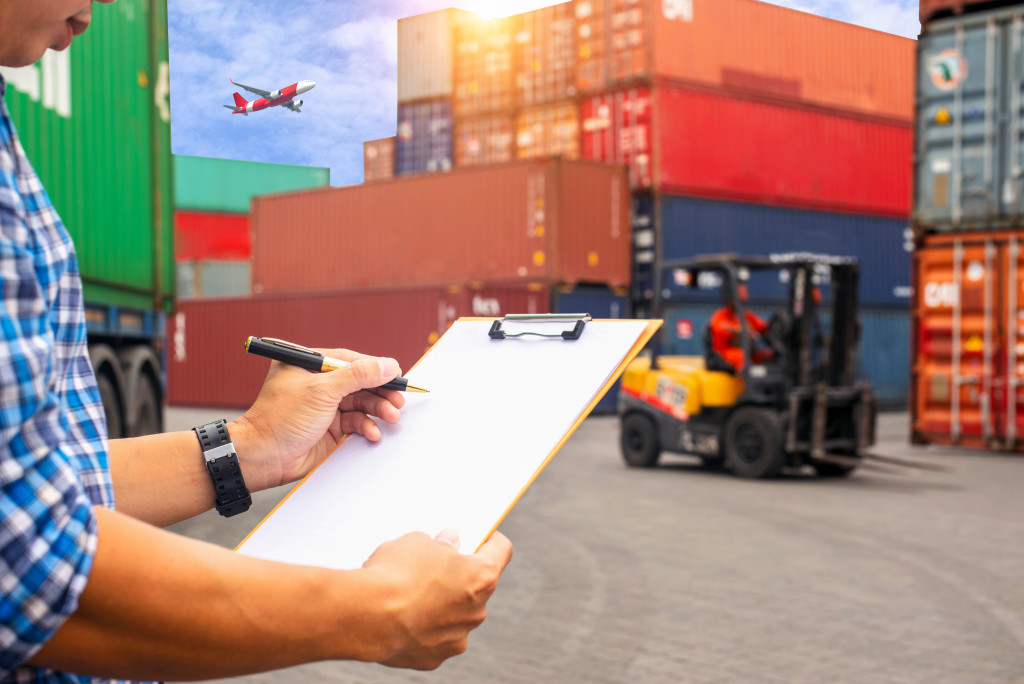- Conduct regular safety training for all employees to refresh their knowledge of safety procedures.
- Implement a traffic control system to enable safe navigation between vehicles and pedestrians.
- Ensure all drivers follow road safety regulations and have legal representation for road accidents.
- Require Personal Protective Equipment (PPE) for all employees and make sure it is available in appropriate sizes.
- Regularly inspect all equipment and ensure they are in top condition before use.
Safety is paramount in any business, but it is of utmost importance in a logistics business. The safety of your employees can affect the success of your business. Safety mishaps can lead to devastating consequences, including financial and legal repercussions. Therefore, every company must prioritize employee safety to ensure a safe and healthy working environment. Here are some top employee safety tips to implement in your company.
1. Conduct Regular Safety Training
Employee safety begins with training. Training every employee in your business on safety measures and protocols would be best. When training, ensure you review the policies and procedures for their positions. Conduct regular safety training for all employees to refresh their knowledge of safety procedures and remind them of the importance of following these protocols.
If you have new employees, provide safety training immediately. This will help them understand the company safety culture and become familiar with potential hazards in their work environment. Most importantly, safety training should be ongoing and regularly updated to ensure all employees are up-to-date on the latest best practices.
2. Implement a Traffic Control System
In warehouses or logistics businesses, objects are constantly moving, including forklifts and other motorized equipment. Implement a traffic control system that enables pedestrians and vehicles to navigate safely around each other. Traffic control systems can include installing safety mirrors, designating separate pedestrian walkways, and setting up barriers restricting vehicle access to certain areas.

3. Ensure Road Safety Regulations
If your business operates on roads, you should ensure that all drivers follow the safety regulations of the road. Drivers should be well-versed in defensive driving techniques, traffic laws, and rules. Also, you should ensure that your vehicles are well-maintained and regularly inspected to operate safely.
Additionally, you want to have legal representation in case of road emergencies. For example, when driving larger vehicles like a semi-truck, you want to ensure that you have adequate legal protection in case of an accident. Working with a reliable semi-truck attorney who specializes in trucking laws could help. They can give you the legal representation your business needs in an emergency.
4. Use Personal Protective Equipment
Personal protective equipment (PPE) should always be required for every logistics business employee. Ensure PPE is always available and accessible to employees in appropriate sizes. Employees should be mandated to wear the relevant PPE for their role anytime they are on-site. PPE includes the following:
a. Hard hats
Many construction sites require hard hats for all employees as they help protect against knocks and drops from overhead. Some PPE may also require face shields for specific roles.
b. Safety goggles
Safety goggles help protect eyes from dust, dirt, and other particles. When working with chemicals, laborers should wear safety goggles to protect against potential contamination. Especially when working with hazardous materials, safety goggles should be mandatory.
c. Ear protection
Protecting hearing is equally important as protecting sight and head. Employees working in loud environments should wear ear protection to protect their hearing. Ear defenders or noise-canceling headphones are both effective solutions.

d. High-visibility clothing
Many logistics businesses have large fleets of vehicles that operate in areas with dense traffic. To ensure maximum safety for drivers, they should be mandated to wear high-visibility clothing at all times. This will help other drivers on the road spot them from a distance and adjust their speed accordingly.
5. Regularly Inspect Equipment
Equipment used in logistics businesses is typically heavy machinery that requires inspection at specific intervals. These inspections are to identify any damage that could compromise the safety of your employees. Schedule regular maintenance on all equipment and ensure they are thoroughly inspected before each use.
Employees must also feel comfortable coming forward with security concerns without fear of reprisal. Employees who report safety hazards are helping their colleagues and contributing to the overall security and success of the business. When equipment or procedures are not up to safety standards, they should be reported immediately and fixed as soon as possible.
Safety cannot be compromised in a logistics business. Adopting these safety tips can help reduce the risk of accidents, injuries, legal liabilities, and loss of lives in your industry. Safety training, traffic control systems, road safety, personal protective equipment, and regular equipment inspections are all critical for creating a safe work environment. With the right approach to employee safety, businesses can minimize risks and ensure the safety of all employees.



